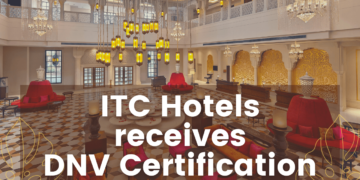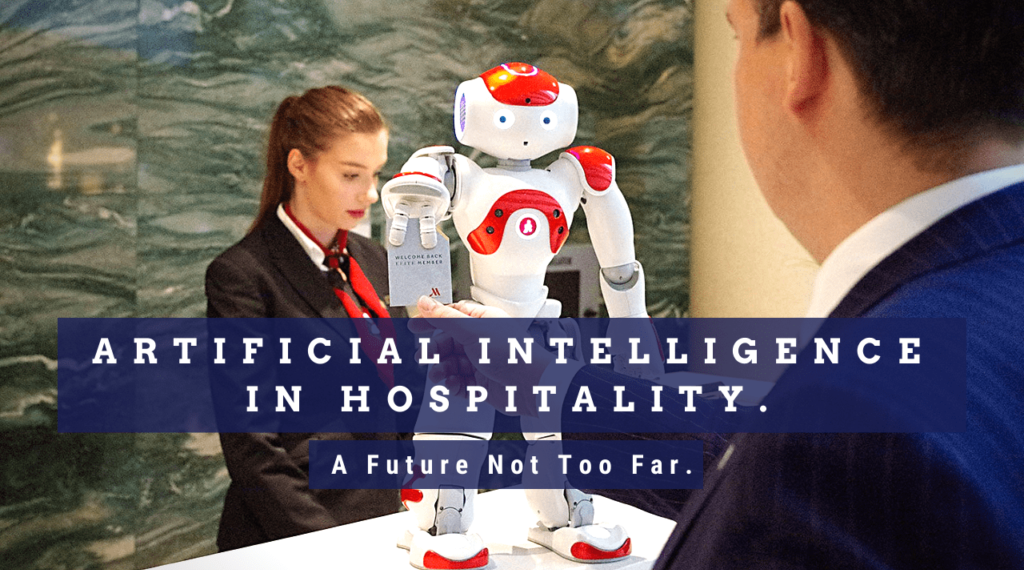Technological advancements continue to disrupt traditional processes and, in this regard, it is expected to evolve further to offer unimaginable service experiences by organizations to people across the world in the very near future.
Artificial Intelligence or AI promises to offer tremendous opportunities for service excellence, creation of newer domain of employment avenues, and in the process augment industrial and economic growth for countries.
The Question, however, Is India ready to embrace AI and pave for a new technology revolution? India’s history does indeed support this possibility. In the past, starting in the late 1980’s, India successfully clasped the computer revolution bubble and took almost a decade to become an Information Technology (IT) leader in the world. Today, the Indian IT sector contributes significantly to the country’s GDP and is among the highest employment opportunity provider in the country. The journey of India as an IT major, however, has not been without its ups and downs.
As regards AI, early signs do suggest that India is slowly moving towards industries adopting sophisticated technology and AI to offer their products and services to the world market. Experts estimate that by the year 2050, 40% of manpower across different industries would be replaced by robots. In India itself, investments in AI and related technologies are expected to touch $16 billion by the year 2025.
The transition towards AI though, unlike IT, is expected to be slow and difficult. A country where a service sector like Hospitality and Tourism is a major employment generator, an ill-planned transition into AI may momentarily lead to greater levels of unemployment. Further, organizations are expected to possess the necessary capital, infrastructure, and expertise to introduce AI for services.
Furthermore, India should possess a good number of effective technology and research and development institutes dedicatedly training young minds to design, develop, and maintain AI and related technologies. Moreover, industries and organizations should have an active will to embrace AI, given the extremely volatile, competitive, dynamic nature of the business market, heightened levels of customer awareness and expectations, and the very need for the organizations to remain relevant in the business-scape. The adoption of AI and related technologies in India, therefore, is found to be at an embryonic stage.
However, notwithstanding the challenges involved, the advantages of using AI by organizations abound. In this connection, some sectors like, for example, Healthcare, Logistics, Automobile manufacturing, and Hospitality have already adopted AI-related technologies to bring about operational excellence in their business processes.
In fact, as regards the service sector, some international luxury hotels like FlyZoo, Henn Na Hotel, and The Yotel use AI robots to render their services.
The AI in these Hotels assists in offering significantly improved and robust Housekeeping, Reception, and Food Delivery processes. These technologies are also effectively utilized for handling customer complaints, offering authentic, accurate, and timely information on queries (e.g., travel destinations, flight/railway bookings, food, movies, shopping outlets, etc.) as raised by the guests and in the language of their preference.
In fact, today’s innovative technologies, such as data analytics, artificial intelligence, robotics, mobility, and other next-generation solutions, unleash revenue generation potential for Hotels and Restaurants.
This is being accomplished, in part, by allowing hotels to focus more intently on giving their loyal guests the best experience possible which, in turn, is carefully designed to create repeat business.
For example, it has become more commonplace to see automated check-in kiosks at the hotel lobby, allowing the front-desk personnel to concentrate more on other priority tasks. Hotel chains are also using mobile apps for check-in check-outs, offering guests everything from making reservations for meals to a quick scan of local concerts, plays, sporting events, and other activities around the country.
AI through features such as machine learning has enabled hotels to grow in business. It has ever since been rapidly evolving and is already making a huge impact, with technology enabling AI to integrate into everyday life. By using AI, hotels across all industries (travel and tourism) are now able to use available data more effectively to complete the tasks well in time. ‘Chatbots’ are the most ideal addition for customer centric-businesses and destinations. A conversational bot can serve 24/7 front-end customer care specialists & they are capable of totally transforming visitor servicing in destinations after hours.
Also, the extant research available in the domain of Hospitality and Tourism suggests that lack of knowledge of language(s) hamper the motivation of potential tourists from visiting a particular destination. In this connection, Hotels that use AI technologies capable of handling multiple languages are expected to differentiate themselves from other hotels by truly offering services that are customized and personalized as per the needs of the tourists. Notwithstanding the observed benefits, AI and related technologies can still be beneficially used to improve customer service experiences by optimally utilizing chatbots, Kiosk machines at reception, and interactive robots programmed to demonstrate human-like service capabilities (i.e., emotional intelligence, empathy, responsiveness, spontaneity, and flexibility in the decision).
For example, interactions for hotel booking that are enriched with intelligent Chatbots can offer immense convenience to customers: 24/7 availability, hasty delivery service along with several custom options for booking room services. Built-in combination with call center agents, conversational AI in hotels will fuel the digital reservation process helping hotel businesses upsell relevant services (such as spa, body care treatments, dinners and bar reservations, lounge package, etc.).
Further, AI can also alert front office managers about the VIP check-in for the surprising and delightful guest experience. Valet will know the ETA and will be ready for the guest’s car parking. AI can also be used to email guests who are late to check-in and ask for special requirements needed. Robot butler will be ready in room for food service that guests will not be expecting (e.g., a fresh lemonade).
From customers’ perspective though, it is expected that many guests may be reluctant to rely entirely on the information as provided by the AI-based technologies. This is because the validity, reliability, and accuracy of any information given by the robots are conditioned to the quality of the program and algorithms that enable the AI technology to perform. Therefore, it is expected that in some situations that require some flexibility in information dissemination and decision making, guests may still feel that experienced humans may eventually far better than mechanically programmed robots.
One solution to this issue could be to have an in-depth understanding of customers’ levels of readiness, perceptions, and attitudes towards adopting AI-related technologies. Further, organizations may even undertake extensive AI-related awareness interventions for customers and travellers thereby, bridging the gap between human and robot interactions. Moreover, guests who are frequent travellers often experience service recovery by receiving calls from staff members and smiling faces who greet you at the time of check-in and the same faces at the time of check-out. In this connection, researchers are working on robots who can sense human emotions, analyse emotions from vocal intonations and, accordingly offer its reaction and response to the customer’s need.
Against the afore-mentioned benefits of AI, Hotel Management in India should take concrete and tangible steps to include AI in their daily operations for better functioning of the organization, revenue generation, enhance guest satisfaction and guest loyalty!
By,
Mr. Prithvi Roy.
Guest Contributor – Hospitality Connaisseur.
LinkedIn
(Mr. Prithvi Roy is an Assistant Professor of Front Office at Welcomgroup Graduate School of Hotel Administration – Manipal Academy of higher education – Karnataka, INDIA.)





























